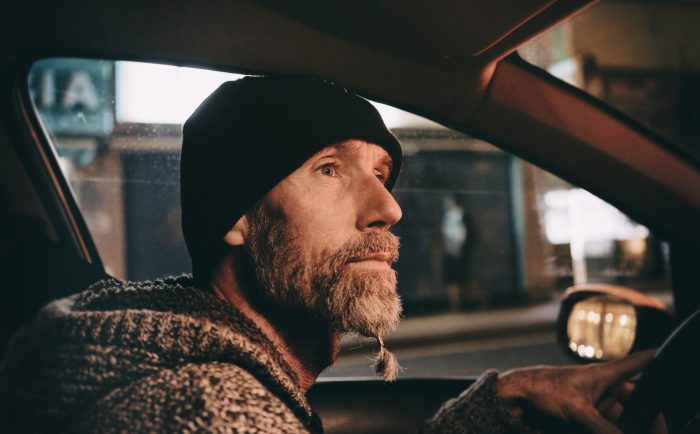Every night is hot—full of half sleep, dreams mixing with shadows and the silence of the room, sheets damp with sweat despite the ceiling fan and air conditioning.
My body twists and contorts among three pillows of its own accord in search of comfort on a spring-filled mattress in my guest room.
I wake before the alarm set for 6 a.m., still unclear as to whether I have slept at all, aware that the hour is appropriate for activities that coincide with the rising sun. I brew coffee, breathe for 10 minutes, do 30 pushups, and slip into Child’s, or Prayer pose—I don’t know what makes the name; the stretch in my arms is what makes the movement.
I take another breath, rock forward over my arms, raise my chest, and look upward into what I am pretty sure is Cobra; it’s the popping of my spine as I feel my core stretch that makes it worth the time. Again, I breathe and then raise my backside, lowering my head and try to push my heels to the floor, stretching my calves. I have never understood the association to a dog with this one and have no interest in lingering.
Exhaling, and stepping forward with my right foot, I shift the heel of my left so it is perpendicular to the left, a little more than a shoulders’ width apart. I stretch my arms and lean my weight into my front leg—“warrior,” I mutter. Now I can have a cup of coffee.
The earthy aroma fills my nostrils: “Alright, no COVID-19 today.” I throw in a dash of half-and-half and take a modest sip. For a moment, I don’t feel yesterday, have no concern about tomorrow, and the only today exists in my coffee. Time has enveloped me as if I was a small child being held in my father or mother’s arms. With a swallow, the moment is gone.
Shower, dress, pack a snack, prepare a thermos, grab a mask, grab a spare mask, and drop my bags in the back of the car. My work today, every day, is administrative work—monitoring contracts, discussing outcomes, reading reports, writing reports—all of which could be done remotely. It’s not been explained why my department has to have someone downtown every day. A need for civil servants to be seen at their posts amidst the crisis? Maybe, no one has said.
Every day, someone says the word “unprecedented” as if it is some genius insight to notice that what we have traditionally done in a day has to be a bit different than the way it’s been done before. They usually use the word at the end of what they are saying as if it punctuates the thought. I try to reframe it as people discovering that every day is and always has been “unprecedented,” with no moment actually being the same as any other, but I can see they don’t have that thought.
The conversations regularly transition to getting back to what we once did rather than what could emerge from all this. It seems that I am going to work to satisfy an arcane notion that sitting in a building’s cubicles makes work, not the activities that are performed there. An empty building looks bad.
There, of course, was a procedure set in place to protect us. “We will rotate days in the office among everyone. There will be only a limited number of staff in the building at any time. We will sign a release about our potential exposure, wear masks, have our temperatures taken, and socially distance ourselves while in the building.”
My son had to cross the country to come back home at what should have been his spring break. He had to finish his hard-won years from his old bedroom. To add insult to injury, they made his classes pass/fail in a year when he was headed for a straight-A finale, flattening the grade point average he had coveted since junior high school. They gave him a small stipend to pack and ship his things, but still charged the majority of the room and board for the time he wasn’t there. They then took the stipend to pack and ship his things to him. Columbia University gave him a YouTube graduation. He wore the robe for his grandfather in a Zoom chat.
My wife has been able to provide telehealth in lieu of office visits. She and my son ask me, “Why do you go in?” They know why. They’re asking me if it’s worth it. I just don’t have an alternative. I’m still paying for his education, we still have a mortgage, we still need healthcare coverage—I go because it’s pragmatic. When I come home, I change clothes, we eat distanced from each other, and we all sleep in separate rooms.
Despite the office precautions, at least 10 percent of my coworkers, like the general population around us at the time, have become sick with COVID-19.
At least two, sometimes three, days a week, I load up my car. I think about the people who have to do it every day to take the edge off my thoughts. That doesn’t change that I am going in. It doesn’t answer “why.” I back out of the driveway, and head to the interstate.
It should be about a 20-minute drive without traffic, and it can be an hour with traffic. Lately, it has taken 12 to 15 minutes.
I take a breath as I pull onto the entrance ramp, exhaling as I accelerate. There is little to no traffic with the pandemic. I breathe in as I listen to the engine rev up and I feel the tires cling to the asphalt. I notice each little stone and crack they encounter. The world streaks past in my peripheral vision but is vividly clear in front of me. I am not paying attention to whether I am accelerating or cruising. The road is empty. It doesn’t really matter. I feel the road, I feel the speed, and for a moment, I feel comfort in going somewhere, anywhere.


 Share on bsky
Share on bsky





Read 4 comments and reply